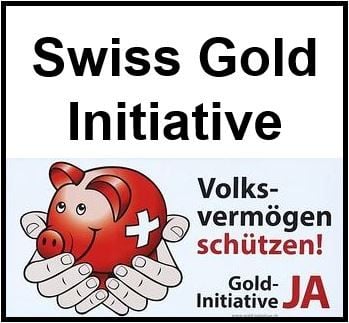Switzerland votes on Sunday on whether to protect its wealth by investing in gold, and whether limits should be set on immigration numbers.
Supporters of the plan believe the Swiss National Bank should hold 20% of its reserves in gold within the next five years. If voters agree, the central bank would have to buy 1,500 metric tons (1,650 short tons) of gold, which at today’s price would be worth over $60 billion.
The right-wing, European-Union skeptic Swiss People’s Party says the central bank has already sold too much gold.
A vote in favor would also mean that Switzerland’s central bank would have to keep its gold at home and would not be allowed to sell any of it. Thirty percent of Switzerland’s current gold reserves are held in England and Canada. If the proposal is approved, those reserves would have to be repatriated.
Swiss National Bank President Thomas Jordan says the initiative is dangerous and would make it harder to respond to currency fluctuations “with negative consequences for the Swiss economy.”
Proponents of the plan believe the Swiss National Bank has sold too much gold and should have a minimum of its reserves in the precious metal.
Immigration
The referendum is also asking Swiss voters to decide whether there should be a curb on net immigration to a maximum of 0.2% of the country’s population annually. The main political parties have criticized the proposal.
It would mean cutting annual immigration from its current 80,000 to 16,000. Proponents argue that it would reduce pressure on resources, which they say are bursting at the seams.
Opponents say the country needs immigrant for economic growth.
The European Union (EU) is Switzerland’s biggest trading partner. Curbing immigration could endanger its attempts to salvage several treaties with the EU.
Voters must also decide whether rich foreigners in Switzerland should continue having special tax privileges.
According to recent opinion polls, the three proposals will be rejected. As often happens in a referendum, however, poll predictions could be way off if citizens use the event as an opportunity to protest against the government.


